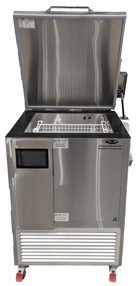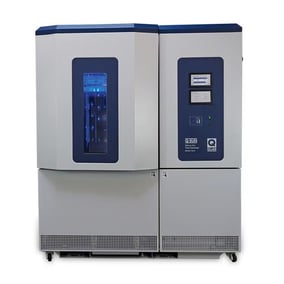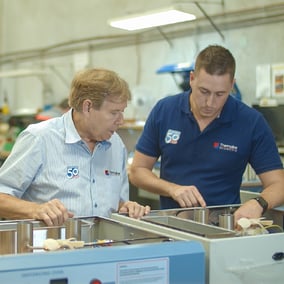In the medical and healthcare industries, the safe storage of Fresh Frozen Plasma (FFP) is of paramount importance. FFP is a vital component used in various treatments, including for patients with clotting disorders and those requiring plasma exchange therapy. To ensure its effectiveness, FFP must be stored at extremely low temperatures, which is where specialised FFP freezers come into play. In this blog, we’ll explore the significance of FFP freezers in Australia, the standards they must meet, and the benefits of investing in high-quality equipment.
The Critical Role of FFP Freezers
Fresh Frozen Plasma is typically frozen within hours of being collected from donors to preserve its clotting factors and proteins. Once frozen, it must be stored at a temperature of -30°C or lower to maintain its viability for up to a year. Any deviation from this temperature range can compromise the plasma’s quality, rendering it ineffective or even dangerous for patients.
FFP freezers are specifically designed to provide the stable, ultra-low temperatures required for long-term plasma storage. They ensure that FFP remains in optimal condition from the time it is frozen until it is thawed for use in a medical procedure.
Australian Standards for FFP Freezers
In Australia, the storage of FFP is governed by strict standards set by regulatory bodies such as the Therapeutic Goods Administration (TGA) and the National Association of Testing Authorities (NATA). These standards ensure that FFP freezers meet the necessary criteria for safe and effective storage. Key requirements include:
- Temperature Stability: FFP must be stored at or below -30°C. Freezers must have reliable temperature control systems to maintain this low temperature consistently, even during periods of high use.
- Monitoring and Alarms: Continuous temperature monitoring is crucial for FFP storage. Freezers should be equipped with alarms that notify staff of any temperature deviations, ensuring that immediate action can be taken if necessary.
- Capacity and Accessibility: FFP freezers should have adequate storage capacity to prevent overcrowding, which can impede proper air circulation and cooling. Additionally, freezers should be designed for easy access, allowing staff to retrieve and organise plasma units efficiently.
- Compliance with Safety Standards: FFP freezers must comply with all relevant Australian safety standards, including electrical safety and environmental impact regulations.
Choosing the Right FFP Freezer for Your Facility
When selecting an FFP freezer for your healthcare facility in Australia, it is essential to consider the following factors:
-
Reliability and Quality: The freezer should be manufactured by a reputable company known for producing high-quality medical refrigeration equipment. This ensures long-term reliability and performance, which are critical in maintaining the integrity of stored plasma.
-
Temperature Uniformity: Consistent temperature control throughout the freezer is crucial. Look for models that offer uniform cooling, with minimal temperature fluctuations, even when the freezer is accessed frequently.
-
Advanced Monitoring Systems: Modern FFP freezers often come equipped with advanced monitoring systems, including remote monitoring capabilities. These systems provide real-time data and alerts, allowing for proactive management of plasma storage conditions.
-
Energy Efficiency: While reliability is the primary concern, energy efficiency is also important. Energy-efficient freezers can help reduce operational costs and minimise the environmental impact of your facility.
-
Compliance with Australian Standards: Ensure that the freezer complies with all relevant Australian standards and regulations, including those related to temperature control, safety, and environmental impact.
The Importance of Investing in High-Quality FFP Freezers
Investing in high-quality FFP freezers is essential for any healthcare facility involved in the storage and handling of plasma. The right freezer not only ensures compliance with regulatory standards but also provides peace of mind that plasma products are stored under the best possible conditions. This is particularly important in emergency situations, where the availability of high-quality plasma can be lifesaving.
Additionally, reliable FFP freezers can help reduce waste by preventing the spoilage of plasma products due to temperature deviations or equipment failure. This not only saves costs but also ensures that plasma is available when it is needed most.
Conclusion
In the Australian healthcare landscape, the importance of FFP freezers cannot be overstated. These specialised units play a critical role in ensuring that Fresh Frozen Plasma is stored safely and reliably, maintaining its viability for medical use. By choosing high-quality, compliant freezers, healthcare providers can ensure that they are prepared to meet the needs of their patients with confidence.
For those looking to upgrade their facility’s plasma storage capabilities, it is important to explore the range of FFP freezers available through reputable Australian manufacturers and suppliers. Investing in the right equipment will not only ensure compliance with stringent standards but also contribute to the overall safety and effectiveness of medical treatments.






